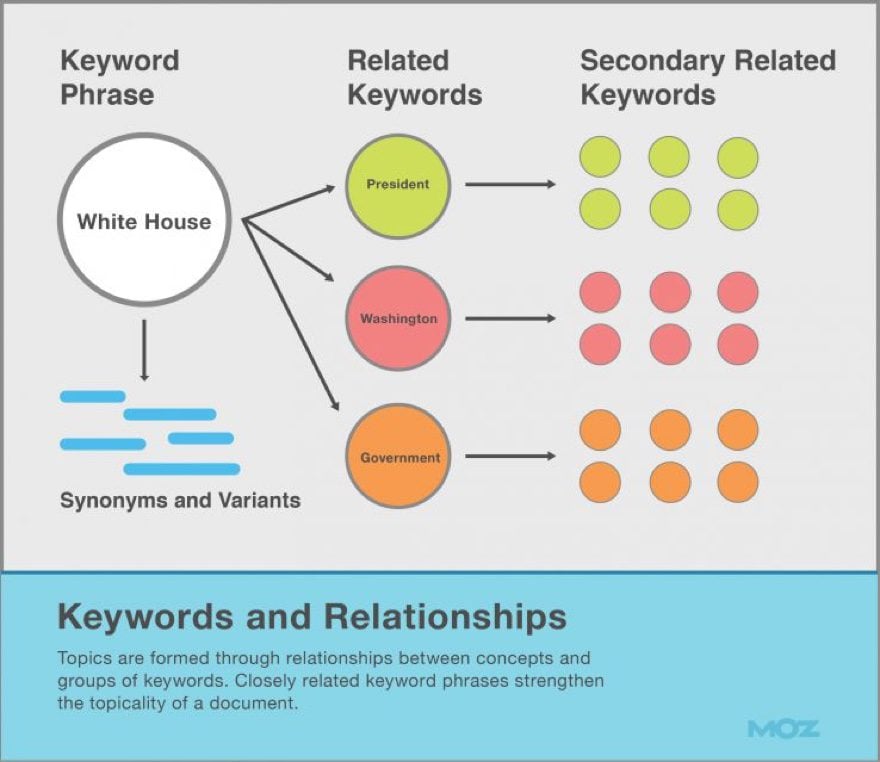Unlocking Digital Visibility: A Comprehensive Guide To Keyword Analysis, Research, And Understanding Search Results
What Exactly Are Keyword Analysis and Keyword Research?
While often used interchangeably, keyword analysis and keyword research are distinct yet deeply interconnected processes, both vital for enhancing your website's visibility and driving increased traffic. Think of them as two sides of the same coin, each offering unique insights into the digital landscape.Defining Keyword Analysis
Keyword analysis is the meticulous process of evaluating queries people type into search engines to identify and prioritize search terms you want to rank for—and use them more effectively. When used in SEO, analyses typically focus on keyword popularity, the level of competition in organic (unpaid) search results, and, crucially, the intention behind the average search query. It's about taking a set of potential keywords and scrutinizing them to determine their true value and strategic fit for your content. This involves looking beyond just the words themselves to understand the context and potential impact they could have on your digital presence.Defining Keyword Research
Essentially, keyword research is the strategic process of uncovering and analyzing the actual words and phrases people type into search engines. It is the practice of searching and analyzing terms and phrases that users type into the search engine. It's about understanding what your target audience is searching for and using that knowledge to optimize your website content. Thorough keyword research and analysis play a pivotal role in enhancing your website's visibility and driving increased traffic. Digital marketing efforts without keyword research are akin to navigating a dark room without a flashlight – you might stumble upon something, but it's largely by chance. It is a basic SEO foundation that ensures your efforts are targeted and impactful. Once identified, these strategic terms are then integrated into a website’s content, meta tags, URLs, and other elements on each web page, enabling it to rank higher among search engine results for those specific queries. Insights gleaned from keyword research should inform your content and SEO strategies, so you can create content that ranks well and attracts your ideal users.The Power of Understanding "People Who Searched"
At the heart of both keyword analysis and research lies a fundamental goal: to understand the "people who searched." It's not just about finding popular words; it's about empathizing with your audience, anticipating their needs, and providing solutions to their queries.Decoding Search Intent
Google, and other search engines, rank content for relevance. This is where the concept of search intent comes in. Your content will only rank for a keyword if it meets the searchers’ needs. Analyzing keyword search analytics provides invaluable insights into user search behavior, preferences, and trends. It helps website owners identify search queries that are highly relevant to their business and target audience. For instance, someone searching for "how to fix a leaky faucet" has a very different intent than someone searching for "plumbing services near me." Recognizing these nuances allows you to tailor your content precisely to the user's stage in their journey, whether they are seeking information, comparing products, or ready to make a purchase. By understanding which keywords are most relevant to their target audience, companies can create targeted content designed to rank well in organic search results. This ensures that the content directly addresses the questions and needs of potential customers, fostering a more effective connection.Local SEO: A Practical Example
Let's bring this concept to life with a practical example. You want customers in your local area to find your business when they search. Here's an example of local keyword research in action: Let's say you own a pizza shop in New York City. You wouldn't just want to rank for "pizza." That's too broad and competitive. Instead, you would want to target keywords like: * "Pizza delivery New York City" * "Best pizza NYC" * "Pizza near me New York" * "Italian restaurant East Village" * "Late night pizza delivery Manhattan" These keywords reflect the specific needs and geographical location of your target customers. By optimizing your website and local listings for these terms, you significantly increase the likelihood of appearing in search results when a hungry New Yorker is looking for a slice.Navigating the Landscape of Search Results
The ultimate goal of all keyword efforts is to achieve prominent placement in search results. These results are the digital storefronts where your business can either shine or remain hidden. Understanding how they work and how to influence them is paramount.Optimizing for Organic Search Results
Effective keyword research helps ensure that when prospective customers search using those terms, the business's website appears prominently in the search results, driving organic traffic. When strategic terms are integrated into a website’s content, meta tags, URLs, and other elements on each web page, it enables the site to rank higher among search engine results for those specific queries. This process is about building a bridge between what people search for and the solutions your website provides. It ensures that your digital marketing efforts are not just shots in the dark but precisely aimed arrows.Analyzing Search Results for Insights
When conducting keyword research, analyzing search results is crucial to understanding how Google ranks content and what users expect to find. This report reveals which web pages rank for specific keywords in search results. By examining the top-ranking pages, you can glean valuable insights into: * **Content Format:** Are the top results mostly blog posts, product pages, videos, or images? * **Depth of Content:** How comprehensive are the articles? Do they cover the topic exhaustively? * **User Experience (UX):** How easy are these pages to navigate? Are they mobile-friendly? * **Search Intent Alignment:** Do the top results truly answer the query's underlying intent? This data helps in optimizing landing pages, improving user experience, and enhancing website visibility in search engine results. Now it’s time to analyze your keywords and identify the most suitable ones, keeping these factors in mind.Key Metrics and Tools for Effective Keyword Strategy
Keyword research can feel complex—so let’s change that by breaking it into its three primary elements: discovery, analysis, and application. To execute these elements effectively, you need to understand key metrics and leverage the right tools.The Importance of Search Volume
First, consider search volume — are there enough people searching for this term to make it worthwhile? Search volume, a crucial metric in keyword research, reveals the average number of times a particular keyword is searched for within a given timeframe. It helps you determine which variations of your keywords are most popular amongst searchers. It's also important to remember that search volume differs based on location. This means a keyword might have a high volume in a particular location and a lower volume elsewhere. For our New York City pizza shop, "pizza delivery" might have a massive global volume, but "pizza delivery New York City" is the relevant metric for local targeting.Leveraging Keyword Research Tools
One of the best ways to discover what keywords people are searching for is by using keyword research tools. These tools provide valuable insights into the volume, competition, and trends associated with specific keywords. They offer a comprehensive view of keyword metrics, helping you identify the right keywords for your content strategy. You can enter those keywords into a keyword research tool to discover the average monthly search volume and similar keywords. While many robust paid tools exist, a fantastic free resource to help advertisers build keyword lists for search campaigns is Google Keyword Planner. It also has tools to generate keyword ideas and estimate bids to help you refine your marketing strategy. These tools are indispensable for streamlining the discovery and analysis phases of your keyword strategy.Here are some of the most popular and effective keyword research tools:
- Google Keyword Planner: Free, great for initial ideas and volume estimates.
- Ahrefs: Comprehensive, offering competitive analysis, backlink data, and extensive keyword metrics.
- Semrush: Similar to Ahrefs, providing competitor analysis, keyword research, and site audit features.
- Moz Keyword Explorer: Focuses on keyword difficulty, volume, and organic CTR.
- Ubersuggest: Offers keyword ideas, content ideas, and competitive analysis, with a generous free tier.
In conclusion, mastering the art of keyword analysis and keyword research is no longer optional; it's a fundamental requirement for digital success. By meticulously uncovering and analyzing the words and phrases "people who searched" type into search engines, you gain invaluable insights into their intent and needs. This understanding empowers you to create targeted content that not only resonates with your audience but also positions your website prominently in "search results." From defining key terms and understanding user behavior to leveraging powerful metrics like search volume and utilizing dedicated tools, every step in this process contributes to enhancing your online visibility and driving meaningful traffic. Embrace keyword strategy as a continuous journey of discovery and optimization, and watch your digital presence flourish.
- Hacked Ip Cam Telegram The Inside Scoop You Need To Know
- Best Gore Video Sites A Deep Dive Into The Dark Corners Of The Web
- Unraveling The Mystery Of Fik Fap
- Grace Robert Brattygbaby Exclusive Content Videos
- Unveiling Funkytown The Infamous Mexico Cartel Video Its Context

Keyword Analysis: What it is, Why is it important, How to do and 7

How to do Keyword Research for SEO a beginner's guide | Research, How

Quick and Simple SEO Keyword Research Tips for Bloggers